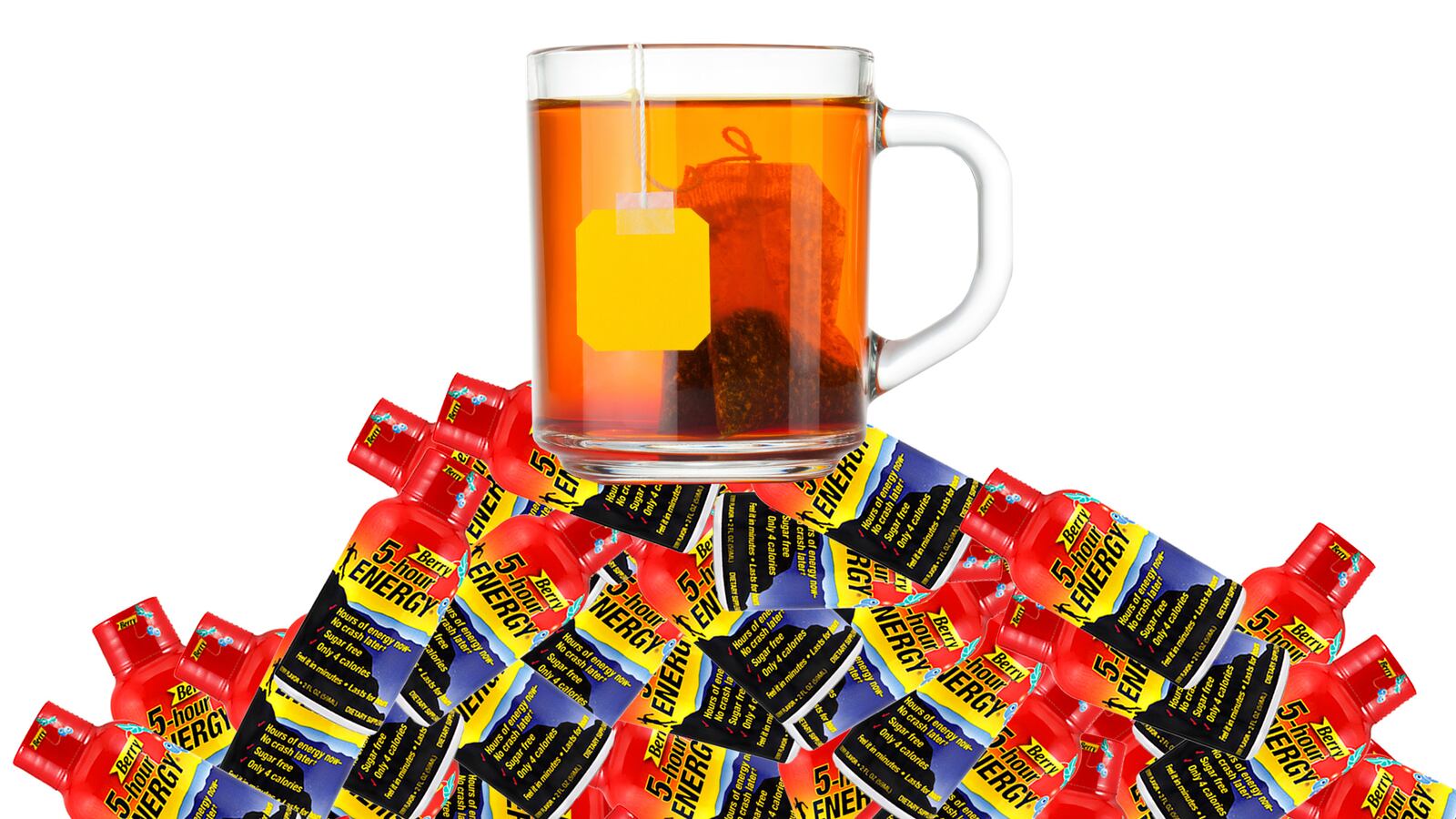The caffeine high with “no crash later” might be crashing after all.
The makers of wildly popular energy shot 5-hour Energy are being sued by three states for deceptive advertising. Legal officials in Oregon, Washington, and Vermont blasted the beverage company for propaganda of a highly-caffeinated beverage where consumers allegedly enjoy a productive high without crashing.
“We recommended that the ‘no crash’ claim be discontinued because their own evidence showed there was a crash from the product,” said Andrea C. Levine, director of the National Advertising Division at the Better Business Bureau.
5-hour Energy’s own unpublished study found that, in fact, 24 percent of users reported a “moderately-severe” post-drink crash (but it was less than Red Bull’s and Monster Energy’s, with a respective 80 percent and 75 percent reporting a crash). Since the controversy began brewing, 5-hour Energy added a barely noticeable asterisk amending the claim to be “no sugar crash”—which is true, since there is no cane sugar in the product.
In addition to caffeine, most energy drinks haphazardly toss in a mixture of poorly understood ingredients, from Vitamin B to Taurine. The supercharge doses of vitamins have questionable benefits. “None of them are going to boost energy unless you’re B-deficient,” said Dr. Brent Bauer, the Mayo Clinic’s director of the Complementary and Integrative Medicine Program.
So, rather than an expensive and untested concoction, I’ve become a fan of an ancient, healthy alternative: tea.
“The problem with the five-hour energy drink is that it is too much caffeine at once,” explained Dr. David Agus, a University of Southern California professor and author of The End Of Illness. “People take it as a shot and the jolt of this much caffeine in few seconds can cause serious problems in the body. When you drink a cup of tea or coffee you drink it over a much longer period of time, hence the added safety.” 5-hour Energy has around 200 milligrams of caffeine, similar to a cup of coffee, but its design lends itself to being gulped down like a shot of tequila.
Not all naturally caffeinated beverages are equal. Unlike coffee, tea has an amino acid that is associated with calmness: Theanine. When comparing the effects of coffee and tea on cognitive performance, the outcomes of a few studies “suggest that the beneficial effects of tea consumption on simple attention tasks were not merely due to caffeine,” wrote Unilever researcher Suzanne Einöther in an email to The Daily Beast.
Einöther authored the most comprehensive review of research on caffeine to date. “For example, performance on one task was improved after tea (but not coffee) as compared to water, indicating higher alertness. Also, tea was associated with more consistent levels of alertness throughout the day than coffee with the same amount of caffeine,” she explained.
According to Einöther, research is conflicted about the benefits of caffeine over 100 milligrams. Some show benefits for upwards of 400, while others show 200 is better. Einöther’s review of research found that as little as 12mg could produce significant cognitive benefits. It’s important to experiment (starting with a smaller amount and working your way up) to see what the best dose is for each person.
I like to test out my cognitive experiments with the website quantified-mind.com, which was designed by a Stanford graduate student to measure the effects of different diet regimes on tests of reaction time and memory. I’ve found that a few cups of tea do, in fact, produce higher scores on tests of reaction time, but I start to feel anxious as I reach 200mg of caffeine. Instead, I prefer to sip tea slowly throughout the morning for an even buzz.
I also worry about tolerance to caffeine. Our bodies have a tendency to assimilate to the cognitive enhancements of tea, which can eventually lead to addiction. Einöther told me there wasn’t enough research to know when humans begin to tolerate or get addicted caffeine.
Regardless, I’m playing it safe with my mind. Tea gives me an even, calm buzz all day long. Plus it’s cheap, natural, delicious, and generally healthy.






